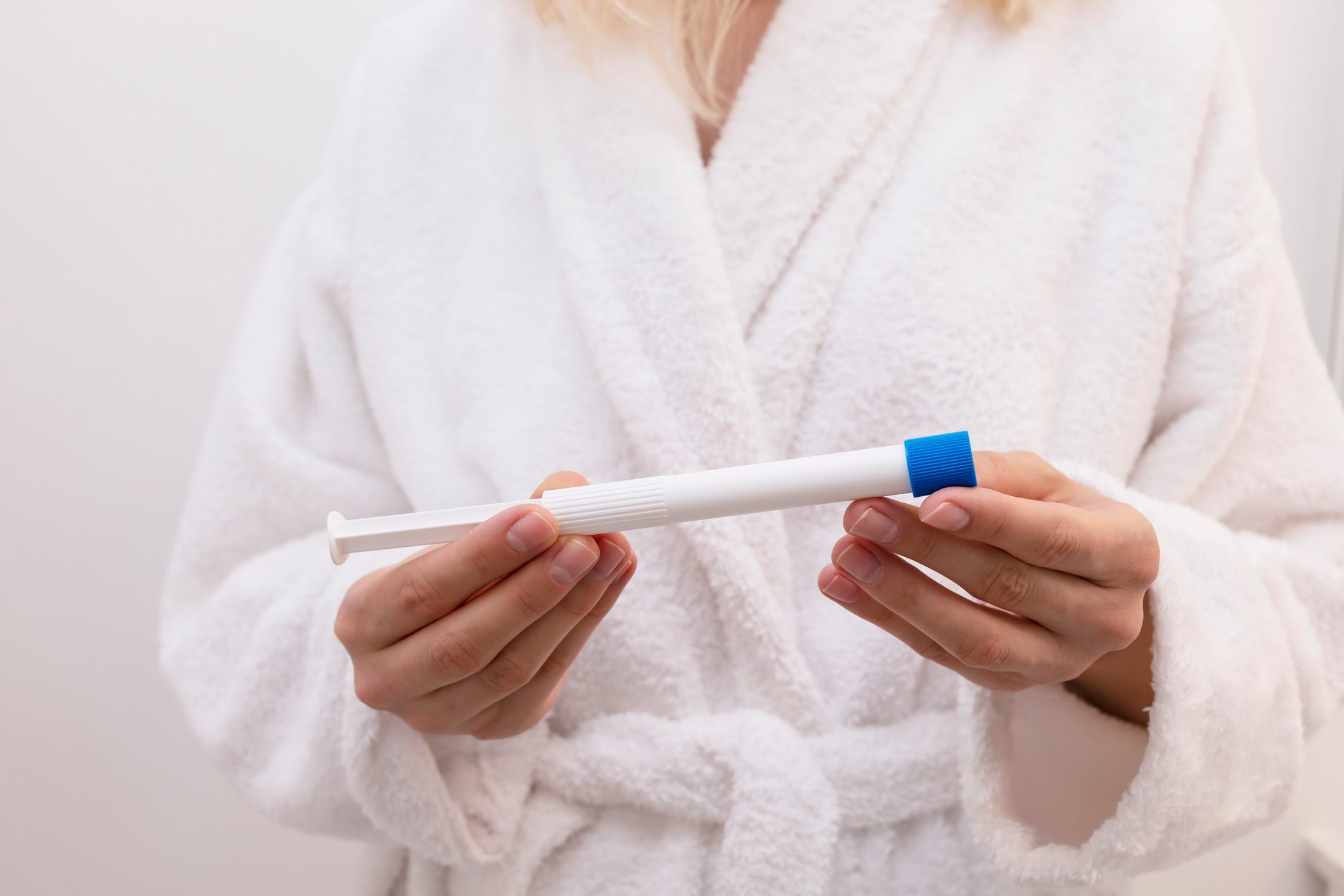The brand is sold at Walmart, Target, and Amazon—here's what users should know about the second major recall for one contraceptives company.

More Than 33,000 Birth Control Products Have Been Recalled Nationwide

Making safe and thoughtful choices about birth control puts you in the driver’s seat when it comes to your reproductive health. However, a recent recall of one non-hormonal birth control method is undermining confidence and could be putting you at risk of adverse effects.
On November 22, The U.S. Food and Drug Administration (FDA) announced that 33,659 birth control products branded as VCF Vaginal Contraceptive Gel and manufactured by Apothecus Pharmaceutical Corp., a Ronkonkoma, New York-based company, are being pulled from shelves. The products were sold nationwide in the US, with a brief online search suggesting the brand is sold at Walmart, Target, Amazon, and possibly other retailers. (The notice adds that the product was distributed by two companies in Hong Kong.)
Each of the affected boxes contain 10 pre-filled applicators of contraceptive gel, with a net weight of 0.09 oz (2.55g). The following information may further help consumers identify whether they have the affected products in their possession:
- National Drug Code (NDC): 52925-512-10
- Lot Numbers: 3A001, 3A001A
- Expiry Date: July 2025
- Recall Number: D-0151-2025
Now, in a December 17 update shared via the FDA Enforcement Report, the health authority has designated the incident a Class II recall. This indicates that use of the product could cause temporary or reversible medical harm, but is unlikely to cause serious illness or death.
The reason for the recall was listed as “CGMP deviations”—meaning the product fell out of accordance with Current Good Manufacturing Practice. Specifically, the recall notice states that the products were “out of specifications for assay,” suggesting that when the formulation was sampled and tested, it did not meet pre-established criteria for safety or quality. The recall does not say exactly how the products failed to meet these regulatory standards, or whether the problem increases the risk of unplanned pregnancy.
“The VCF contraceptive brand is the #1 Film contraceptive in America today. Both the Film and Gel are designed for comfort and offer a hormone-free form of birth control that is safe, effective, and easy to use. They contain the spermicide doctors recommend most, killing sperm on contact,” the company’s site explains. The products are designed to be used within three hours before intercourse.
This is not the first recall affecting the company this year. In March 2024, 17,280 cartons of VCF Vaginal Contraceptive Film were also recalled due to CGMP deviations. The contraceptive film and gel products appear to be the only two products distributed under the VCF brand.
Even so, on its website the company has noted: “Over 200 million Films and 20 million Gel pre-filled applicators have been used worldwide with great success and are available in over 30,000 stores nationwide in the personal intimacy and family planning sections of your favorite store.”
According to Planned Parenthood, 18% of people who use spermicide will become pregnant each year, even if they always use it perfectly. However, they also emphasize that “using spermicide perfectly is hard, so in reality about 21 out of 100 people who use spermicide become pregnant every year—that means spermicide is 79% effective at preventing pregnancy.” Spermicides also do not protect against STIs. For this reason, they’re best used along with additional contraceptive methods, such as condoms.
If you believe you have purchased the affected products, do not use them. Opt for another form of birth control to protect yourself against unplanned pregnancy, and be sure to also talk to your doctor about how to prevent sexually transmitted infections (STIs).
For daily wellness updates, subscribe to The Healthy by Reader’s Digest newsletter and follow The Healthy on Facebook and Instagram. Keep reading:




















